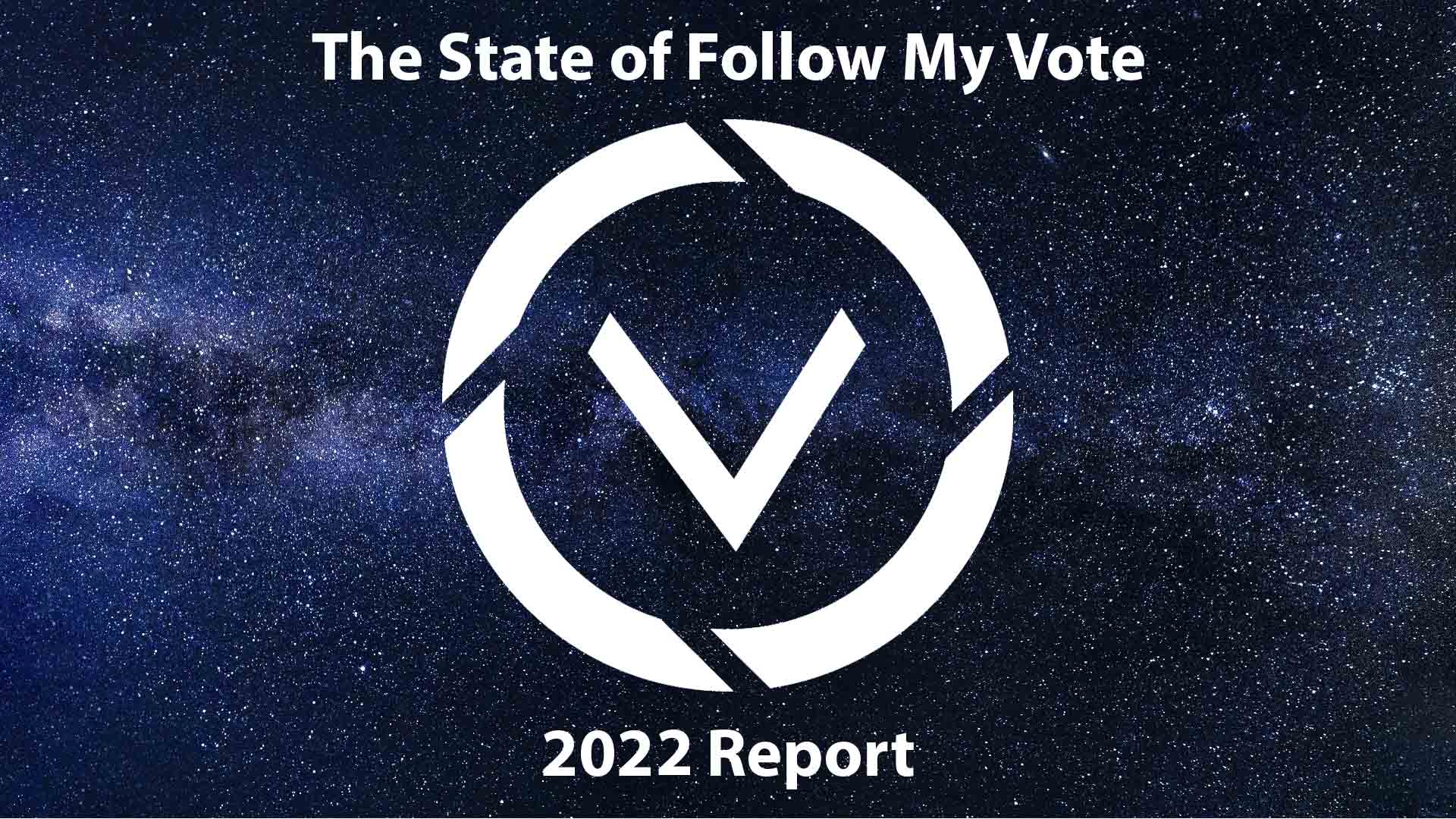The State of Follow My Vote -> 2022 Report
As 2022 is wrapping up, we’d like to take this opportunity to bring our fans and followers up to speed in terms of what we’ve accomplished throughout the year; and, I’m happy to report that the team at Follow My Vote has made significant progress toward achieving our near term goal of bringing secure open-source end-to-end verifiable blockchain-based poling/voting software to people throughout the world.

As mentioned in our The State of Follow My Vote -> 2021 Report, I’ve joined the Government Blockchain Association’s (GBA) Voting Working Group, in an effort to work with my colleagues from various voting related organizations to solve some of the toughest challenges currently plaguing the voting industry.
This year, our global voting working group made massive strides, developing a thought provoking “Remote Ballot Marking & Return Comparison,” which compared the functional and security considerations of available remote ballot return methods. The takeaway here is that, although the technological community at large has yet to develop truly secure end-to-end verifiable voting software for use in elections, the existing methods that are currently in place are even less secure.
Knowing that the voting industry is clearly behind in this regard, the GBA Voting Working Group is taking a leadership role in advising other organizations that develop voting system certification standards, such as the Election Assistance Commission (EAC), on how best to update their standards documentation.
With respect to the EAC in particular, our voting working group recently submitted recommendations to modernize what they refer to as Voluntary Voting System Guidelines (VVSG), as the current and past versions of VVSG do not support the use of internet connected devices.
In theory, should the EAC approve these recommendations, it would make it possible to provide citizens, such as military serving abroad or people with disabilities that can’t make it to the polls on Election Day, a more secure means of remotely casting their vote than they currently have today. We’re excited that these recommendations are currently slated to be reviewed by the EAC’s Technical Working Group.
At present, the GBA Voting Working Group is developing a set of next-generation election standards for each phase of the voting lifecycle (before the polls open, while the polls are open, and after the polls close). We encourage anyone who might have an interest in this initiative to get involved!
With respect to our software development efforts, while I’ve been paving the way for secure open-source end-to-end verifiable voting software to be approved for use in political elections worldwide, our CTO, Nathaniel Hourt has been burning the candle at both ends working to bring our minimum viable product (MVP) to fruition and he’s made some significant progress.
We’re extremely excited to announce that we now have the ability to create decentralized polling/voting software (or any other type of decentralized application (dApp)) in a way in which the implementation of the smart contract can be deployed to multiple blockchains without code changes. This will give users of our software the freedom of choice in terms of which blockchain(s) they’d like to store data on. To our knowledge, this a feat that no other organization in the world has been capable of doing. Nathaniel has named this innovation the Blockchain Abstraction Layer (BAL), which I think is pretty clever/fitting.
We’re also in the process of revitalizing our server infrastructure to ensure it will be ready and able to sustain our MVP upon its release.
In the coming weeks/months, as we work to put the finishing touches on our backend code and get a usable front-end in place, we’ll be sure to give you a sneak peek of our software in action, prior to releasing our MVP and announcing we’re open for business, so stay tuned!


